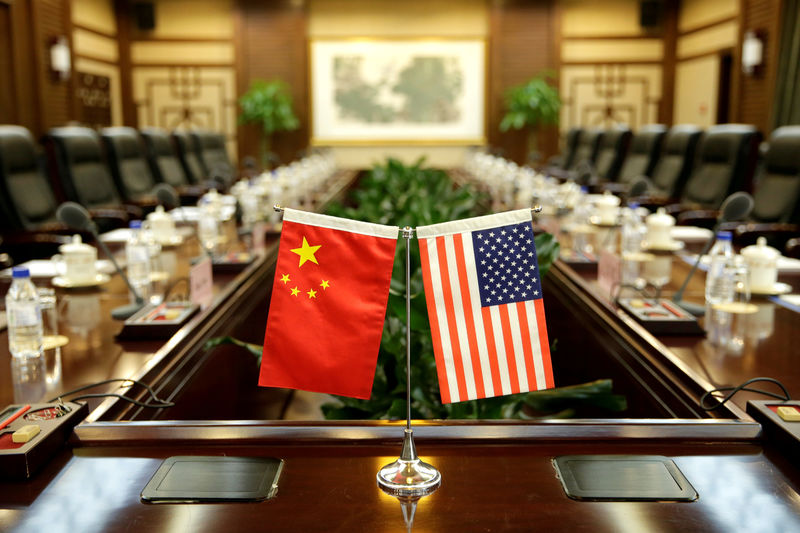 © Reuters. FILE PHOTO: Flags of U.S. and China are placed for a meeting at the Ministry of Agriculture in Beijing
© Reuters. FILE PHOTO: Flags of U.S. and China are placed for a meeting at the Ministry of Agriculture in BeijingBy David Lawder
NEW YORK (Reuters) – U.S. President Donald Trump’s top trade official said on Tuesday that changing China’s economic policies to become more market-oriented “is not going to be easy” even with tariffs now in place on $250 billion worth of Chinese goods.
U.S. Trade Representative Robert Lighthizer, in rare public remarks at the Concordia Summit, said “endless dialogues” with the Chinese government over decades had “failed miserably” in changing Beijing’s policies, so the Trump administration decided to try direct pressure with tariffs based on its study of China’s intellectual property and technology transfer policies.
After China retaliated against what he called “modest” U.S. tariffs on $50 billion in Chinese technology-focused imports, the Trump administration on Monday slapped 10 percent duties on another $200 billion of Chinese goods, including many consumer products.
“We enter into that soberly with an enormous amount of study, but the fact is that what we were doing demonstrably failed,” Lighthizer said.
“It’s not going to be easy,” Lighthizer said when asked what would result in concessions from Beijing. “Change is never easy, particularly where we have change, where there are U.S. companies that are benefiting from the improper Chinese policy,” he said.
Lighthizer repeated his views that China’s intellectual property practices and non-market industrial subsidies that have resulted in excess production capacity would put the future of the U.S. economy and its high-technology industries at risk.
“We changed the paradigm, we have tariffs in place, and the president is not going let this go long, where you take intellectual property where you have a forced transfer of intellectual property, where you treat American companies and farmers and ranchers poorly,” he added.
The U.S. trade chief was meeting on Tuesday with his counterparts from Japan and the European Union as part of regular talks to deal with China’s non-market policies and to craft reforms to World Trade Organization rules.
Lighthizer, who has long criticized the WTO as unable to rein in excess Chinese capacity, said the body’s rules were designed for market-driven economies, not ones dominated by state-owned enterprises like China.
Because all WTO members must agree on rule changes, getting China to agree to new rules that would force changes to its policies is “kind of a conundrum,” he said, adding that he believed in the WTO which remained “an important body.”
“I’ve said this before, if we didn’t have it, we’d have to invent it,” he added.
Fusion Media or anyone involved with Fusion Media will not accept any liability for loss or damage as a result of reliance on the information including data, quotes, charts and buy/sell signals contained within this website. Please be fully informed regarding the risks and costs associated with trading the financial markets, it is one of the riskiest investment forms possible.
Source: Investing.com




























